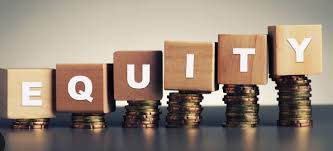Nigeria’s energy policy paradox makes it burn its candle from both ends. The amount of gas flared by oil companies last year alone could generate 100,000 megawatts (mw) of electricity. Yet the power plants are gasping from epileptic gas supplies, while we deplete the ozone layer with the inferno from gas flaring and set the stage for disastrous global temperature rise.
Government spends N1 trillion annually on kerosene subsidy, yet the price of kerosene remains unacceptably high. Because the subsidy on kerosene has failed to bring down the price, millions of households in Nigeria’s sprawling rural communities hew down wood for cooking. That process strips Nigeria of its forest reserves and quickens desert encroachment.
The developed world has since switched from kerosene to the use of cooking gas. Indonesia, for instance, has a deliberate policy that encourages massive use of gas for domestic cooking.
Nigeria’s energy policy punishes those who use gas for domestic cooking. There was a time when Nigerian gas distributors imported cooking gas from Benin Republic. That channel crashed the price of the 12.5 kilogramme cylinder of the product to N1,500.
Now, most of the nation’s cooking gas is supplied by Nigeria Liquefied Natural Gas (NLNG) Company. Ironically, local sourcing has imposed a crushing price burden on Nigerian consumers. With NLNG, the price of the 12.5 kilogramme cylinder of gas has surged to N3,200. The NLNG sells gas for domestic consumption to Nigerian distributors at international price.
If the price of local cooking gas is objectionably high, the costs of cooking gas appliances are simply repulsive for the lower income bracket in society. Most of the firms that used to manufacture cooking gas cylinders have closed shop due to epileptic public power supply and the high cost of generating their own power. The federal government scrambled to the rescue of failed gas cylinder manufacturers with punitive tariff hike on imported cylinders. Tariff on the cylinders was raised from five to 20 per cent in a cynical local industry protection bid.
The industries meant to be protected by that policy have not had any breather from it. Ironically, cooking gas has been priced out of the reach of millions of households. The policy has raised the cost of an empty 12.5 kilogramme cylinder to N12,000. One, therefore, has to cough out N15,200 for the new cylinder and gas. The cost of gas cooker is equally high. A moderate one cannot be less than N15,000. That puts the cost of converting from kerosene to gas at N30,200. No low income earner would invest N30,200 on cooking utensils alone. That would boil down to the irrational economic behavior captured in an Ibibio proverb which says: “If you pay the latrine digger with a barn of yam what would you eat to use the latrine?”
The answer to that rhetorical question is behind Nigeria’s alarming rate of deforestation. Millions of households in the low and some middle income brackets cook with kerosene because the cost of kerosene stove is pocket-friendly. That policy contradiction makes Nigeria a primitive society which depends on 13th century cooking fuel with its attendant disastrous side effects. Nigeria, with a population of 170 million people and gross domestic product (GDP) of a middle-income country, consumes only 150,000 metric tons of cooking gas annually. Most of the cooking is done with kerosene and firewood.
In Benin Republic, women fry buns on the roadsides of Cotonou with cooking gas. Their counterparts in Nigeria do the same thing with firewood. Benin Republic does not produce cooking gas. Yet it has a policy that makes the product pocket-friendly. Nigeria can afford to modernize the kitchens of its citizens by encouraging everyone to cook with clean fuel. The first step in that direction is to make the cost of cooking gas appliances pocket-friendly. Local production of affordable gas cylinders and cookers must be encouraged. A low income family can afford to put down N5,000 to switch from kerosene to gas, given the agony involved in obtaining kerosene.
Besides, the cost of cooking gas itself must be brought down from its artificial height to acceptable limit. Nigerian consumers have no business paying international price for the cooking gas processed in Rivers State. A policy that would encourage the low income bracket to switch from kerosene to cooking gas would have a multiplier effect on the economy and environment. If government policy makes the use of cooking gas attractive, many in the low income bracket would abandon kerosene and switch to gas. That would reduce the demand pressure on kerosene. A drastic cut in demand for kerosene would force down the price and lure many rural poor to abandon firewood and cook with kerosene.
We need that multiplier effect not only to stem the alarming rate at which the Sahara Desert is advancing on the Atlantic Ocean, but also to reduce the number of rural women who die prematurely from firewood-induced asthma.
One study suggests that 91,000 Nigerian women die annually from asthma caused by smoke and dust they inhale while stoking wood-fuel fire. We can cut down that alarming mortality rate with a pocket-friendly price tag for cooking gas and its appliances.



